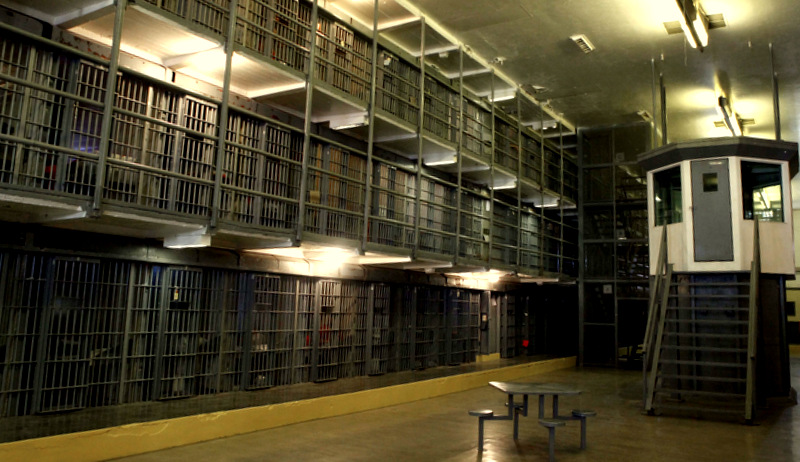
Overcrowding, unattended health issues and abusive behavior is rampant in private prisons, according to a federal review released Thursday, and the Bureau of Prisons that oversees conditions has enabled some of the practices and let others slip by.
Private prisons, or “contract prisons,” have mushroomed since the BOP started outsourcing immigrant detention. The reason, says the new report, is that public prisons were at overcapacity with “federal inmates who are primarily low security, criminal alien adult males with 90 months or less remaining to serve on their sentences.”
With almost five times as many beds today as 20 years ago, the U.S. had too many immigrants to fit in bureau-run prisons, so it signed contracts with for-profit prisons—around since 1983—to help out. The report leaves out that each private prison company spent millions lobbying to ramp up detentions.
Now locking up 12 percent of the BOP’s inmates, three private prison companies—the Corrections Corporation of America, the GEO Group and Management and Training Corporation—earn about US$639 million total a year, a marked increase from five years ago.
While conditions in federal prisons—also subject to little scrutiny—are already reported to be poor, the contract prisons scored worse in nearly every category. One of the companies said that that’s because they’re monitored more closely, but according to the report by the Office of the Inspector General, they’re not being monitored enough.
Responding to why they had nine times more lockdowns from violence than federal prisons, CCA and GEO said they had more Mexicans. Responding to why they illegally held inmates in solitary confinement for reasons other than “disciplinary segregation,” they said they were dealing with overcrowding after being sent more inmates by the BOP that they couldn’t refuse.
The BOP, relying on checklists instead of on-site monitors to oversee the companies, miss widespread denial of health services—including treatment for HIV, cancer and suicidal behavior—that has led to multiple inmate deaths. When the BOP does conduct checks, they do not use an external physician and do not offer suggestions.
The report bluntly says, “the BOP is unable to effectively identify problem areas among the contract prisons or contractors or to proactively take action before a problem becomes acute or systemic.”
While the OIG’s report castigates the BOP for being complacent with illegal practices in private prisons, it does not question the value of keeping for-profit prisons, wrote ACLU prison attorney Carl Takei in The Marshall Project.
“The inspector general’s findings, along with other recent reports and exposes, should spur officials to cancel these contracts rather than accept the human and fiscal costs of this continued arms race,” he wrote.

